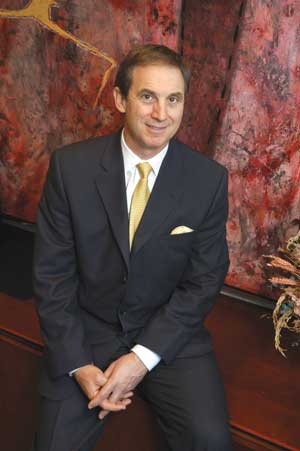Eight non-benchers will now be sitting on discipline hearing panels at the Law Society of Upper Canada. Convocation voted April 26 to expand the pool of benchers available to hear discipline cases.

As a result of the vote, four non-bencher lawyers and four non-bencher, non-lawyers will be added to the roster of people eligible to adjudicate on law society hearing panels. The appeal panel will not be affected by the change.
Prior to the decision, only elected benchers, certain ex-officio benchers, and lay benchers could sit on hearing panels.
The ability to add non-lawyer benchers to the panel was ultimately permitted by changes to the Law Society Act under Bill 14, which says that three-person hearing panels must now be comprised of at least one bencher and either one lay bencher or a person approved by the attorney general of Ontario.
Benchers raised at a previous Convocation the issue that paralegals could serve on the discipline hearing panels of lawyers as a result. However, Mark Sandler, vice chairman of the tribunals committee, said the regulation doesn’t require or preclude paralegals from serving as a third member of a panel, and the issue hasn’t been addressed one way or the other.
The decision to expand the pool was based on concerns over scheduling, consistency, and potential conflict of interest going back to 2005, when convocation created the tribunals composition task force to look into different models for hearing panels. Over the past two years, the task force looked at five different models and held several bencher information sessions on the subject.
Larry Banack, chairman of the law society hearing panel, told Convocation that cases are also becoming more difficult and complex. While there were 42 overdue cases in 2005, there were 70 overdue matters in discipline last year, he says.
He adds that while the eligible pool of adjudicators for hearings sits at 62, only 50 are actually available to sit on panels at the moment, although this number could change depending on the newly elected benchers and the new group of life benchers.
The task force says allowing non-bencher lawyers on hearing panels will bring individuals with specific expertise to the process and help alleviate difficulties in finding available benchers for hearings.
A pool of bencher and non-bencher lawyers could also help to address “any perception outside of the law society that discipline applied by an exclusive group of elected governors is a “closed shop,” according to the task force report.
The four new panel members from the profession will be chosen based on attributes such as their familiarity with the process and procedural rules of the tribunal, judicial temperament, good writing skills, and openness to learn and be trained as an adjudicator.
The new non-bencher, non-lawyer component of the panel, or lay adjudicators, will help with the law society’s current requirement that a lay representative must sit on every panel, says the task force. At the moment, there are only eight lay benchers available for all hearing panels, which can lead to scheduling difficulties.
According to the task force report, the law societies of six other provinces and all three territories have provisions for non-bencher lawyers to sit on hearing panels. Sandler, chairman of the tribunals composition task force, told Convocation it is critical that benchers continue to provide the “lion’s share” of work on discipline hearings.
Without this amendment, says Sandler, there is also no ability to select a non-bencher lawyer for a hearing panel that deals with the discipline of a former or current bencher, or employee of LSUC.
However, while the majority voted in favour of increasing the size of the hearing panel, some benchers voiced their objections to the move.
Toronto Bencher Clayton Ruby said that the decision to add non-bencher lawyers to the complement is premature and that benchers should first try to manage the workload themselves before any steps are taken.
“It is essential that we maintain this core function ourselves,” he said.
Thunder Bay Bencher Ross Murray said: “I feel very strongly that it’s for benchers to sit on discipline panels and I think that, as everyone has said, discipline is our core function and we the benchers are the regulators and responsible for discipline. And so I think the benchers should be the only ones that sit on discipline panels.”
Convocation agreed to budget not more than $100,000 annually for payment and expenses of the new hearing panel members and will carry out a review of the new system in two years.
The new members of the hearing panel will also be paid the same amount as the current members of the panel but, unlike the benchers, will not have to donate 26 days to the law society before being eligible for payment.

 As a result of the vote, four non-bencher lawyers and four non-bencher, non-lawyers will be added to the roster of people eligible to adjudicate on law society hearing panels. The appeal panel will not be affected by the change.
As a result of the vote, four non-bencher lawyers and four non-bencher, non-lawyers will be added to the roster of people eligible to adjudicate on law society hearing panels. The appeal panel will not be affected by the change.